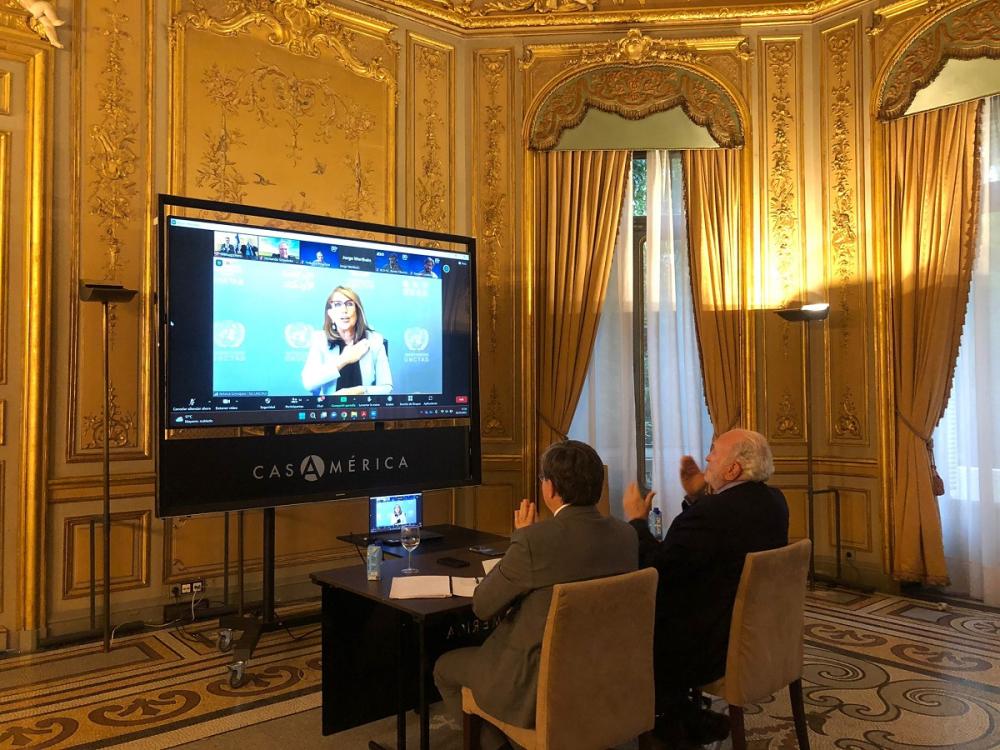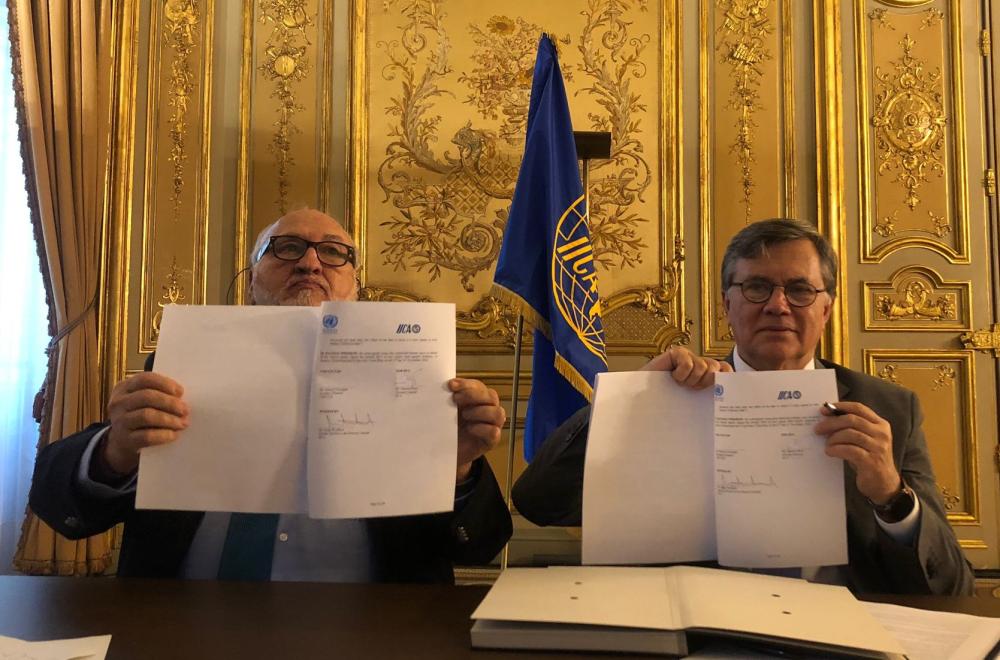The agreement between both organizations was signed by UNCTAD Secretary General Rebeca Grynspan and IICA Director General Manuel Otero.

Madrid, 3 November 2022 (IICA). The United Nations Conference on Trade and Development (UNCTAD) and the Inter-American Institute for Cooperation on Agriculture (IICA) will jointly undertake projects to boost the trade of safe products, food security and consumer protection in Latin America and the Caribbean, as a result of an agreement signed by both organizations.
The agreement was signed virtually by UNCTAD Secretary General Rebeca Grynspan and IICA Director General Manuel Otero. Jorge Werthein, Special Advisor to the Director General of IICA, signed as witness of honor.
The areas of shared work include the gathering, updating and use of data on basic agricultural products, and information on access to international markets of agricultural goods produced by the countries of the Americas, to identify, for example, the existence of preferential tariffs or non-tariff measures.
The project will also include research into food prices and international and regional trade agreements, with special attention to access to food in the region at times when trade is interrupted. Furthermore, the agencies intend to share experiences and improve the exchange of information on consumer protection in relation to food safety and quality.
Lastly, UNCTAD and IICA agreed on the possibility of holding joint activities in the framework of the BioTrade Initiative for governments, and related to UNCTAD’s voluntary sustainability standards program.
The BioTrade Initiative is aimed at companies, governments, and civil society to promote the conservation and sustainable use of biodiversity, and the fair distribution of the benefits of its trade. At present the agreement with the UNCTAD is implemented by organizations in around 100 countries.
Rebeca Grynspan, who before UNCTAD served as Vice President of Costa Rica and Ibero-American Secretary General, said the agreement with IICA seeks to promote inclusive and effective international trade, “for which it is vital to have development in the countries that benefits all people.”
“Through our work with IICA, we seek to have a greater capacity of influence in the countries of Latin America and the Caribbean to better integrate efforts and to face as a region the current flood of challenges, such as health, environmental, climate and social crises,” she added.
IICA’s Director General said that “the new rurality must be sustainable and resilient; we must support family farmers and small-scale farmers so that they can harness the advantages of associativism and cooperativism, and through these organizations attain greater access to science and innovation.”
Manuel Otero commented that the agreement with UNCTAD makes it possible to reduce distances so that the countries of the Americas have more information on international agricultural trade to support their farmers.

“Tools such as precision agriculture and the use of bioinputs, in addition to nearshoring or working with closer partners, are fundamental in addressing current challenges such as soil restoration and access to fertilizers for agriculture,” said the Director General of IICA.
With its headquarters in Geneva, Switzerland, UNCTAD is made up of 195 countries and seeks to support developing nations’ access to the benefits of the globalized economy in a just and effective manner, through decision analysis, consensus building and technical assistance.
IICA is the agency of the Inter-American System specializing in agriculture and rurality. Its member states are 34 countries of the Americas, with headquarters in San José, Costa Rica. The Institute has delegations in all these nations and Spain.
It was precisely in the Spanish capital of Madrid, at the headquarters of the Casa de América, that Otero signed the agreement while on an official visit to Spain.
More information:
Institutional Communication Division.
comunicacion.institucional@iica.int










